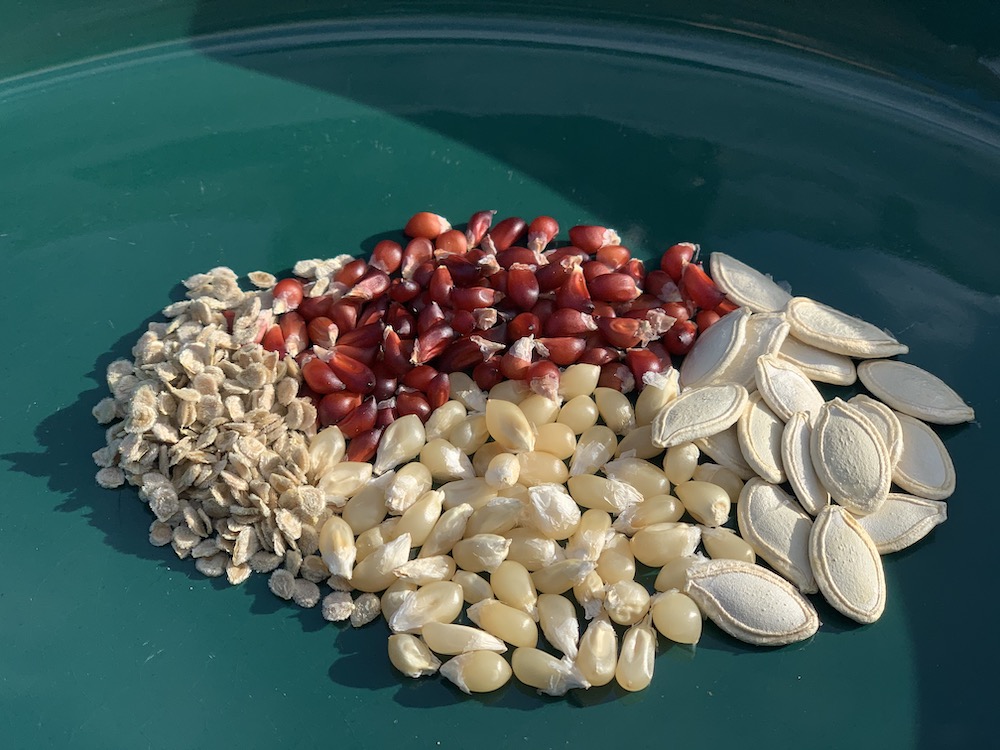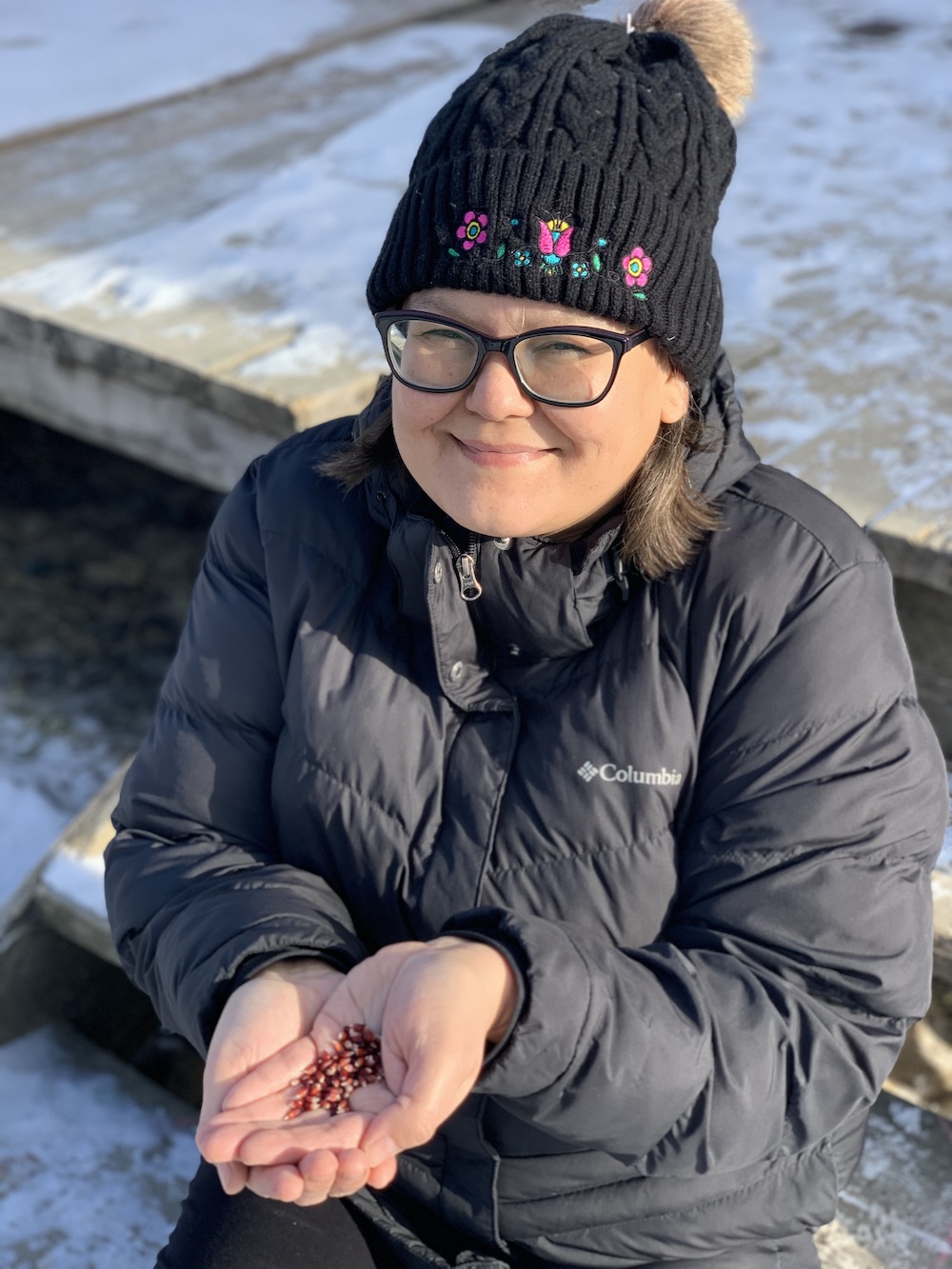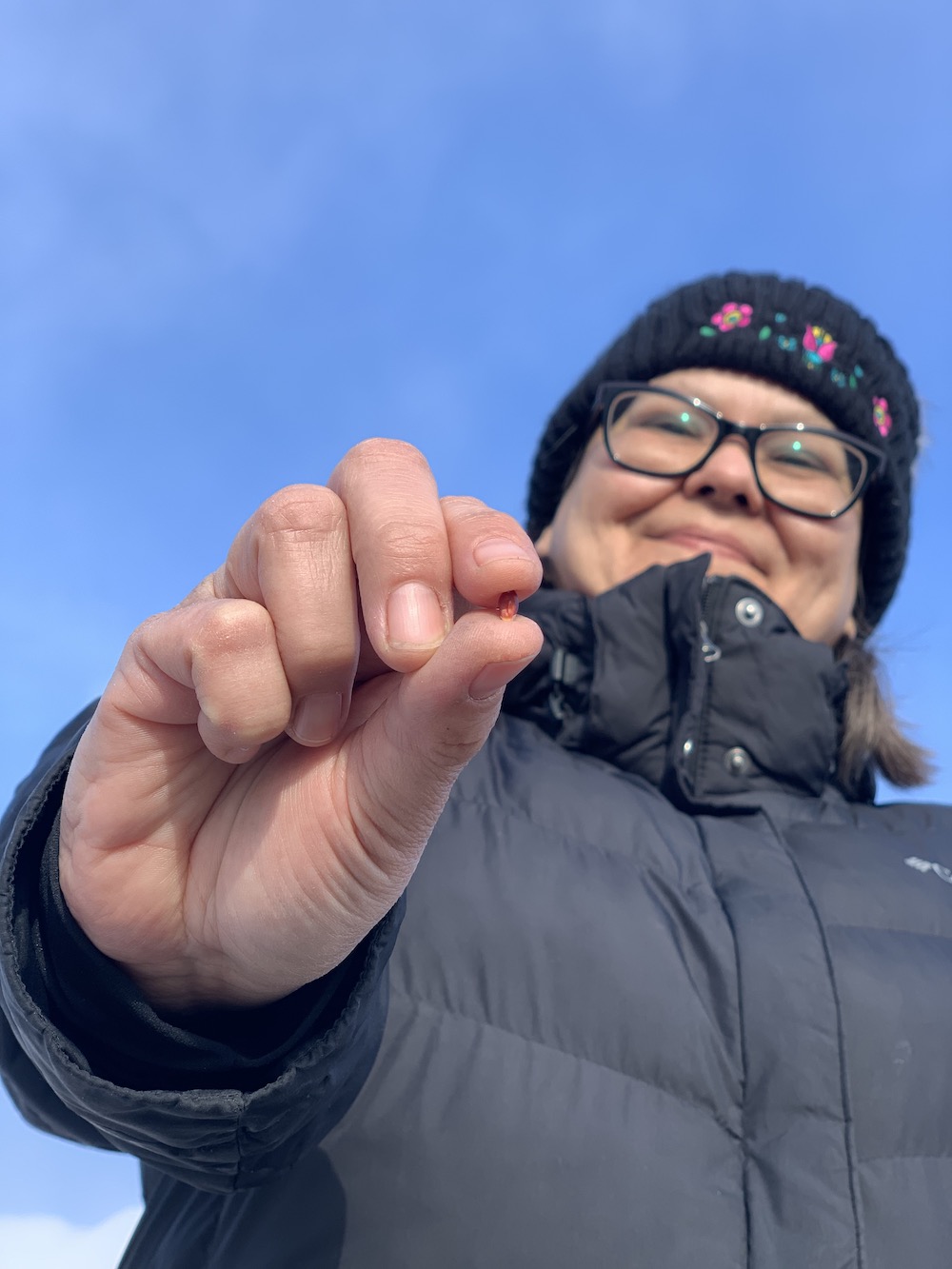Grounding: Seed songs sung in spring
Text by Millie Knapp
Elissia Ferguson sings in her garden. She sang “come in your own time” in Anishnabemowin to 300 tomato seedlings last year. This year, she distributes the heirloom tomato seeds to her community, Kitigan Zibi, and across Turtle Island.
Ferguson’s singing stems from her Anishinabe ancestors. She and her husband, Wilmer Decontie Jr., named their acre garden Kete Mikiinins Kitigaanens. Shirley Tolley, a Kitigan Zibi elder, advised the name, which means old seed garden.
Kete Mikiinins Kitigaanens sits near where Decontie’s grandmother, Clara Decontie, gardened. Like her, they feed their family healthy organic vegetables picked from the garden near their house. They carry forward traditions of connecting to the land in sacred ways.

Ferguson grew up learning how to garden from her father, Thomas Ferguson. They grew tomatoes, cucumbers, and corn on the family porch in Niagara Falls, N.Y.
Ferguson learned her seed song from Rowen White, a leader and blogger in the Indigenous seed sovereignty movement. White mentors Ferguson online in White’s Seed Seva Seasonal Mentorship program. White, director and founder of Sierra Seeds, an organic seed stewardship organization, encourages local seed use. They met in Akwesasne, at a gathering hosted by Sovereign Seeds Indigenous Seed Sovereignty Network in February, 2020.
Ferguson followed White, a seed keeper and farmer from the Mohawk Nation, on Facebook. When they met, White swapped Haudenosaunee strawberry popcorn and bear paw popcorn. Ferguson describes the heirloom Haudenosaunee popcorn kernels and cobs as small. Strawberry popcorn cobs grow to about two and a half inches long.
“They almost look like grains of rice. You can pop them right up and eat it like that or you can grind it into a flour to make polenta or corn bread,” says Ferguson about the kernels, which can be made into hominy, soup, mush, or tortillas.
Diversity benefits life, says Ferguson. She notes how Indigenous gardening builds up soils when many varieties grow together. Ferguson grows three sisters mounds of corn, beans, and squash. The three sisters is an ancient Haudenosaunee companion planting way where each plant complements each other.

She contrasts how industrial agriculture’s monocropping depletes soils fast. Big machinery and pesticides introduce toxicities in the air, land, and water. Clearcutting destroys animal habitats.
Ferguson prefers Indigenous corn varieties in our food chain over Genetically Modified Organism products like corn oil. She believes Indigenous corn has more nutritional value than today’s corn by-products.
She notes how many apple varieties exist, while stores offer only a few. “We’re losing our diversity,” she says.
Ferguson builds diversity with Haudenosaunee and Anishinaabe seed heritage. She swapped for Algonquin pumpkin seeds with Chrystal Toop, seed saver from Pikwakanagan First Nation, in Akwesasne last year.
“You want to start with seeds that fit your region and your area. With my tomato seeds, I’ve been saving the generations for about four generations now. When I grow those ones, compared to any old variety from the store, ours look much better, taste better, and they’re hardier in the garden,” she says.
Ferguson dries and saves the Cherokee purple tomatoes seeds to send to Sovereign Seeds. Anyone interested in receiving the seeds can write Sovereign Seeds to get on their waiting list.

A seed swap has advantages over buying conventional seed packages from local stores. Those sold in stores are not heirloom seeds, explains Ferguson.
“It’s good to know who your seed breeders are so you know what kind of seeds you’re getting,” says Ferguson. “I recommend trying to find a local seed first when you’re growing your garden.”
This year, Haudenosaunee strawberry popcorn and bear paw popcorn seeds kept by White will uphold beans sown by Ferguson. She created mounds last year with a Cherokee glass gem popcorn which didn’t fare well, as it requires a long growing season. Ferguson sings to Haudenosaunee seeds suited to Quebec’s shorter season of May to October.
The three sisters combination of corn, beans, and squash gives a balanced diet of proteins, says Ferguson. Something to consider, as Algonquin communities in Quebec enact a moratorium on moose hunting to stabilize moose populations. Moose is a meat staple for Algonquin communities. Putting the three sisters back into an Algonquin diet makes sense during the moratorium, as “they each have their own protein that, when put together, can replace meat,” she says.
When Ferguson sings in her garden, she brings alive seeds of thought, heritage, culture, and history.
BIO/ MILLIE Knapp, Anishinabe, writes about arts and culture and mino pimadizawin, the good life.
Clara Decontie is Millie Knapp’s grandmother and Wilmer Decontie, Jr. is Millie Knapp’s cousin.
